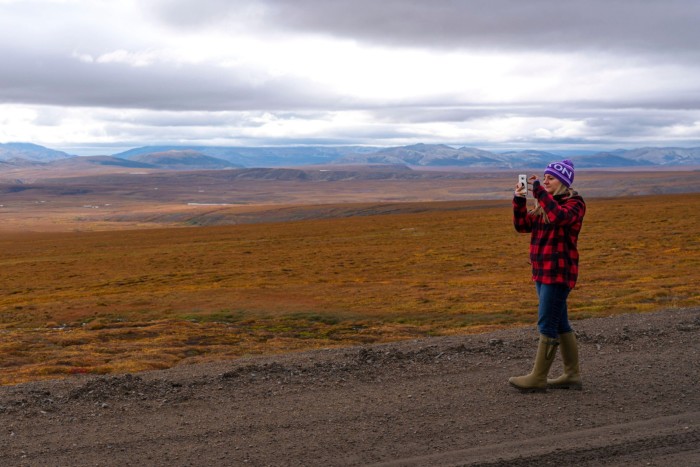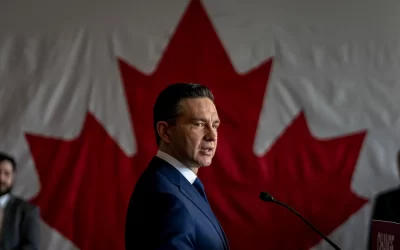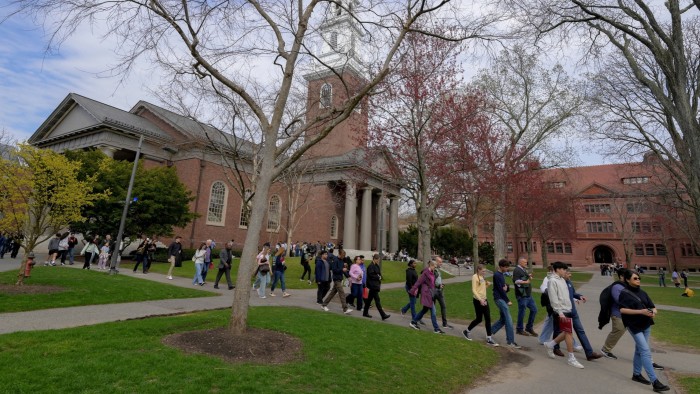Musk’s Starlink in new Canada spat over access to subsidies

Unlock the Editor’s Digest for free
Roula Khalaf, Editor of the FT, selects her favourite stories in this weekly newsletter.
Elon Musk’s Starlink is in a fight with Canada’s top telecoms group over accessing millions of dollars in subsidies, as the country’s growing anti-US sentiment puts the billionaire’s satellite business under further scrutiny.
Bell and its subsidiary Northwestel are lobbying the Canadian authorities to prevent Starlink from getting financial support for internet providers that serve the country’s North region, which includes the Arctic.
According to correspondence seen by the FT, the rivals are seeking to influence the Canadian Radio-television and Telecommunications Commission (CRTC) over issuing the subsidies. The regulator’s decision is being watched closely across the country.
Toronto-listed Bell is arguing that Starlink offers a single price across the country, showing it did not need additional support to operate in the remote areas.
SpaceX, which owns Starlink, has rejected Bell’s claim, saying that such a move would be anti-competitive and leave communities with less choice and more expensive services. The company has sought similar governmental support elsewhere, suffering a blow three years ago when the US withdrew $900mn in grants to bring Starlink to rural locations.
The Canada battle is the latest example of how Musk’s close ties with US President Donald Trump have left his business interests exposed around the world. Roughly half of Musk’s net worth of more than $300bn is now tied to SpaceX — which was valued at $350bn in a recent private tender offer.
Starlink’s use in isolated communities, mostly First Nations, has become contentious as a result of Canada’s wave of anti-US sentiment and patriotism in response to Trump’s escalating trade war and threats of annexation.
The Canadian province of Ontario has ripped up a $100mn Starlink contract in retaliation against US tariffs. Quebec, which has spent $130mn since signing a deal with the satellite group in May 2022, will not renew its subsidy scheme with Starlink this June, according to a spokesperson.
Canada’s Transport minister Chrystia Freeland recently announced an end to the government’s subsidy for Tesla electric vehicles, the US group also led by Musk.
“We should not be giving one cent of public money to an unaccountable imperialist like Elon Musk,” said Geoff White, the executive director of the Public Interest Advocacy Centre (PIAC) that has campaigned for more affordable internet options for all Canadians.
Musk’s Starlink satellite internet system had been embraced by many Canadians who struggle to get cheap, reliable internet in remote locations. The company said last year it had 400,000 active customers in Canada. Starlink costs Canadians C$140 per month for a fixed home address and $189 for an unlimited roaming service.
The CRTC, an independent regulatory tribunal, said in January that a subsidy would help make “internet services more reliable and affordable for residents of the Far North” in an effort to bridge the “digital divide.”
The body has said it will make a final decision on whether to award SpaceX subsidies “in due course” based on evidence made during a public consultation process that ended in February.
Bell and Rogers, Canada’s two biggest communications groups, provide most of the country’s 41mn population with internet and phone networks. But Starlink has been making inroads into the country’s remote regions after it received official approval to operate in October 2022.
Rogers signed a deal with Starlink in April 2023 to bring satellite-to-phone coverage for Canadians in areas beyond its “traditional wireless networks”.

Meanwhile, Canada’s government has two contracts with SpaceX, one worth $2.26mn for its “Shared Services Canada” agency in November 2023 and $414,000 for its Innovation, Science and Economic Development agency in August 2023.
PIAC’s White, who has in the past supported Starlink’s rollout, said Canada’s reliance on Musk’s group highlighted a policy failure. “We don’t outsource this service to China’s Huawei for national security reasons, this is now of similar significance,” he said.
Ottawa lent Telesat more than $2bn in September last year to develop technology to take on Starlink that is widely-popular in remote regions in Yukon province, North West Territories (NWT) and Nunavut, a territory with no fibre-optic internet connection, only accessible by sea or air and home to under 40,000 people.
A NWT government spokesperson said their agencies used Starlink “on a case-by-case basis” but were also “assessing alternative solutions”. A Yukon province government spokesperson said that while it “continues to actively explore other options, Starlink remains the most viable”.
SpaceX, Rogers and Bell did not respond to requests for comment.








